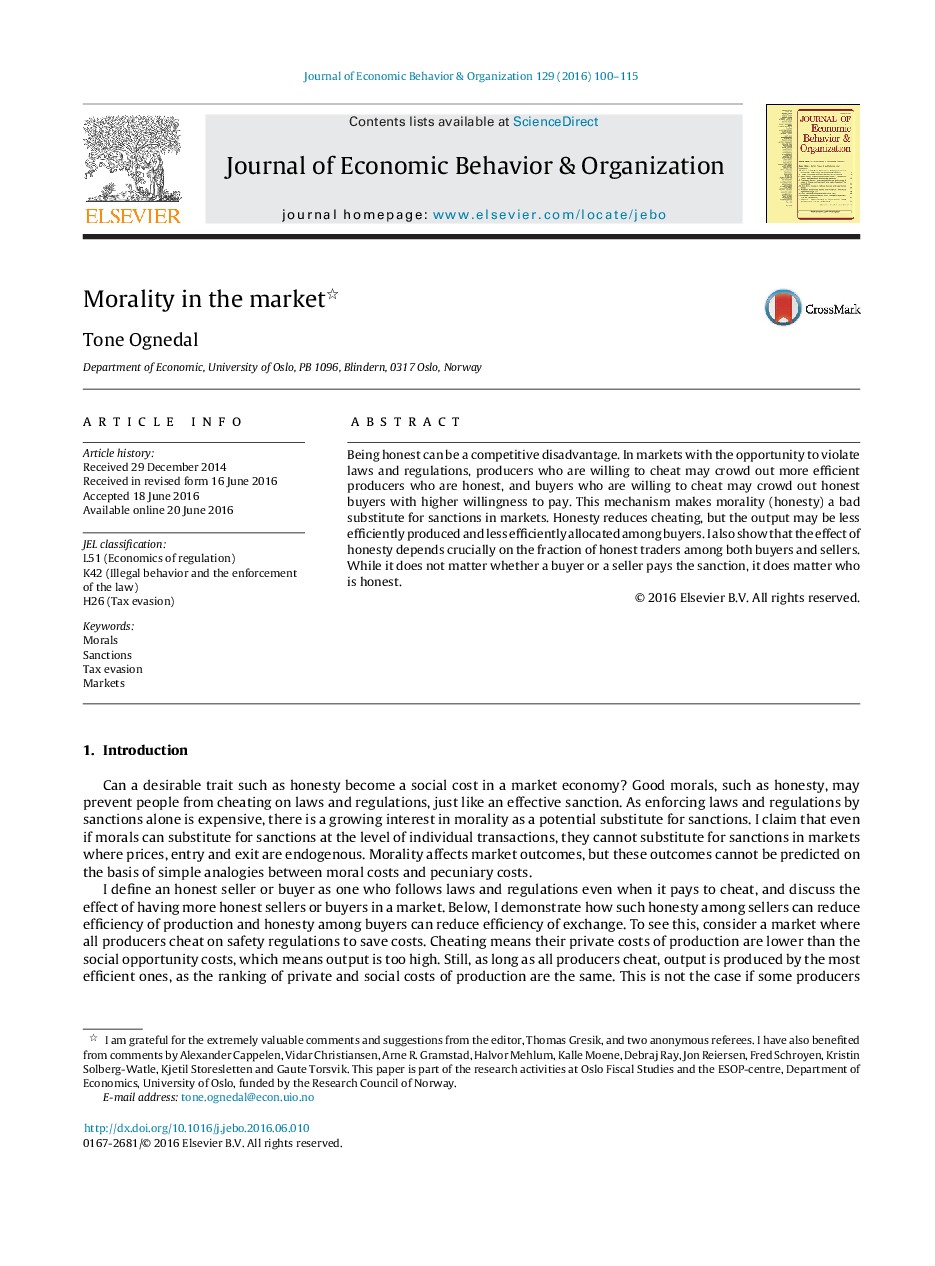| Article ID | Journal | Published Year | Pages | File Type |
|---|---|---|---|---|
| 883410 | Journal of Economic Behavior & Organization | 2016 | 16 Pages |
•Morals, such as honesty, is not a substitute for sanctioning law violations.•A higher fraction of honest sellers or buyers may reduce efficiency of production and exchange.•With a low fraction of honest sellers in a market, a marginal increase in the fraction reduce efficiency.•The effect of honesty depends on whether it is buyers or sellers who are honest.•Increasing the fraction of honest buyers has no effects if the fraction of honest sellers is sufficiently high and vice versa.
Being honest can be a competitive disadvantage. In markets with the opportunity to violate laws and regulations, producers who are willing to cheat may crowd out more efficient producers who are honest, and buyers who are willing to cheat may crowd out honest buyers with higher willingness to pay. This mechanism makes morality (honesty) a bad substitute for sanctions in markets. Honesty reduces cheating, but the output may be less efficiently produced and less efficiently allocated among buyers. I also show that the effect of honesty depends crucially on the fraction of honest traders among both buyers and sellers. While it does not matter whether a buyer or a seller pays the sanction, it does matter who is honest.
